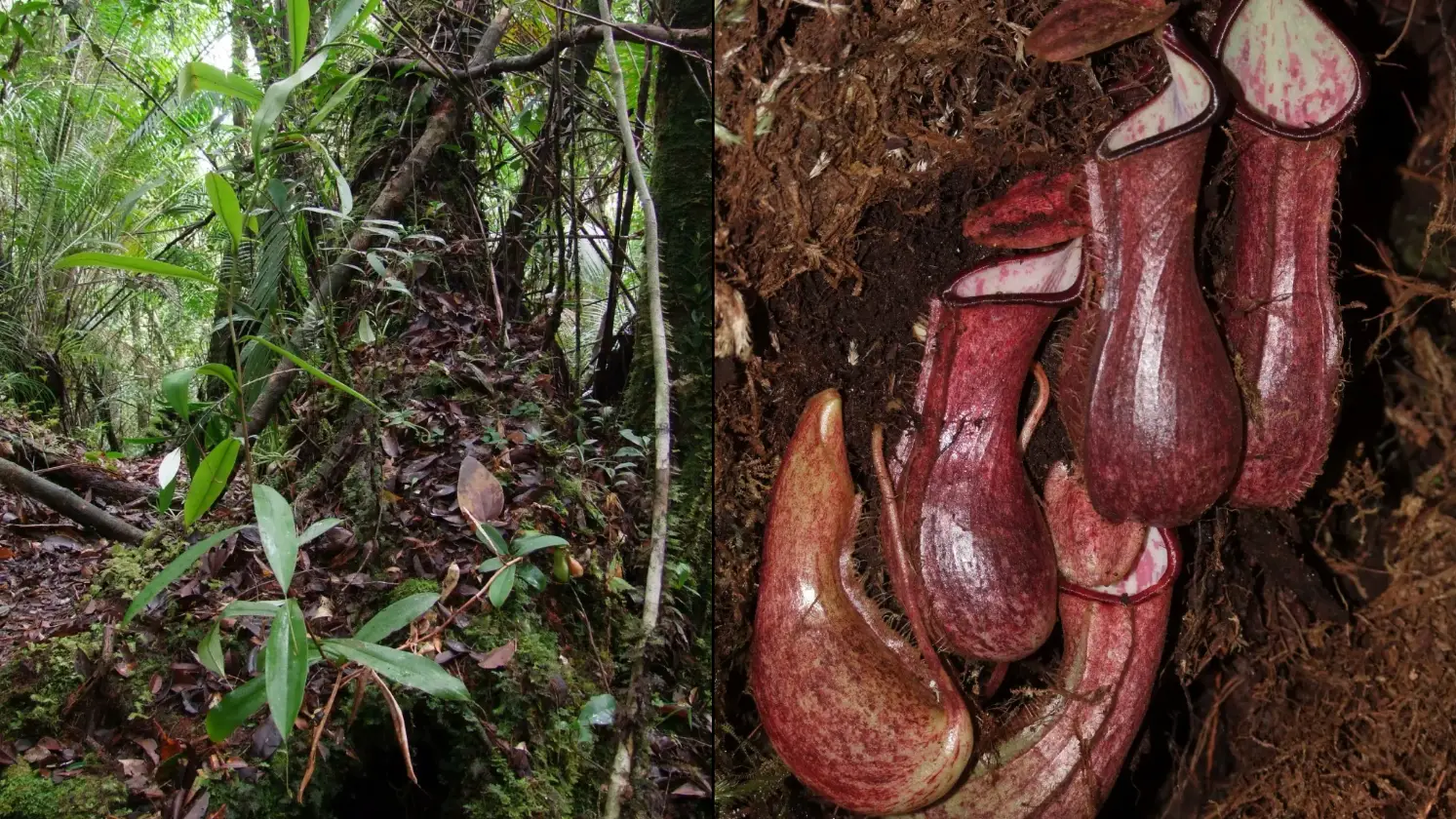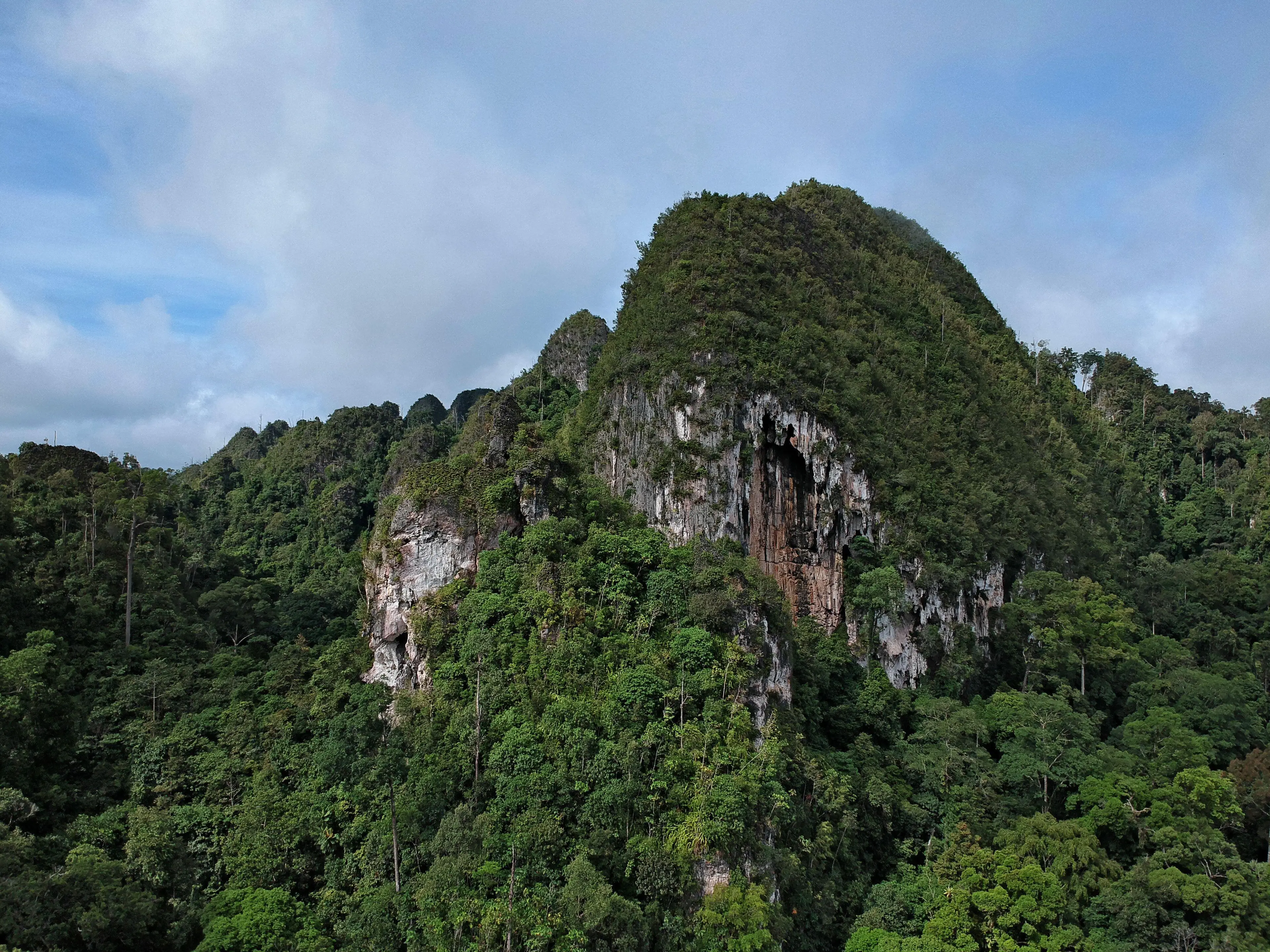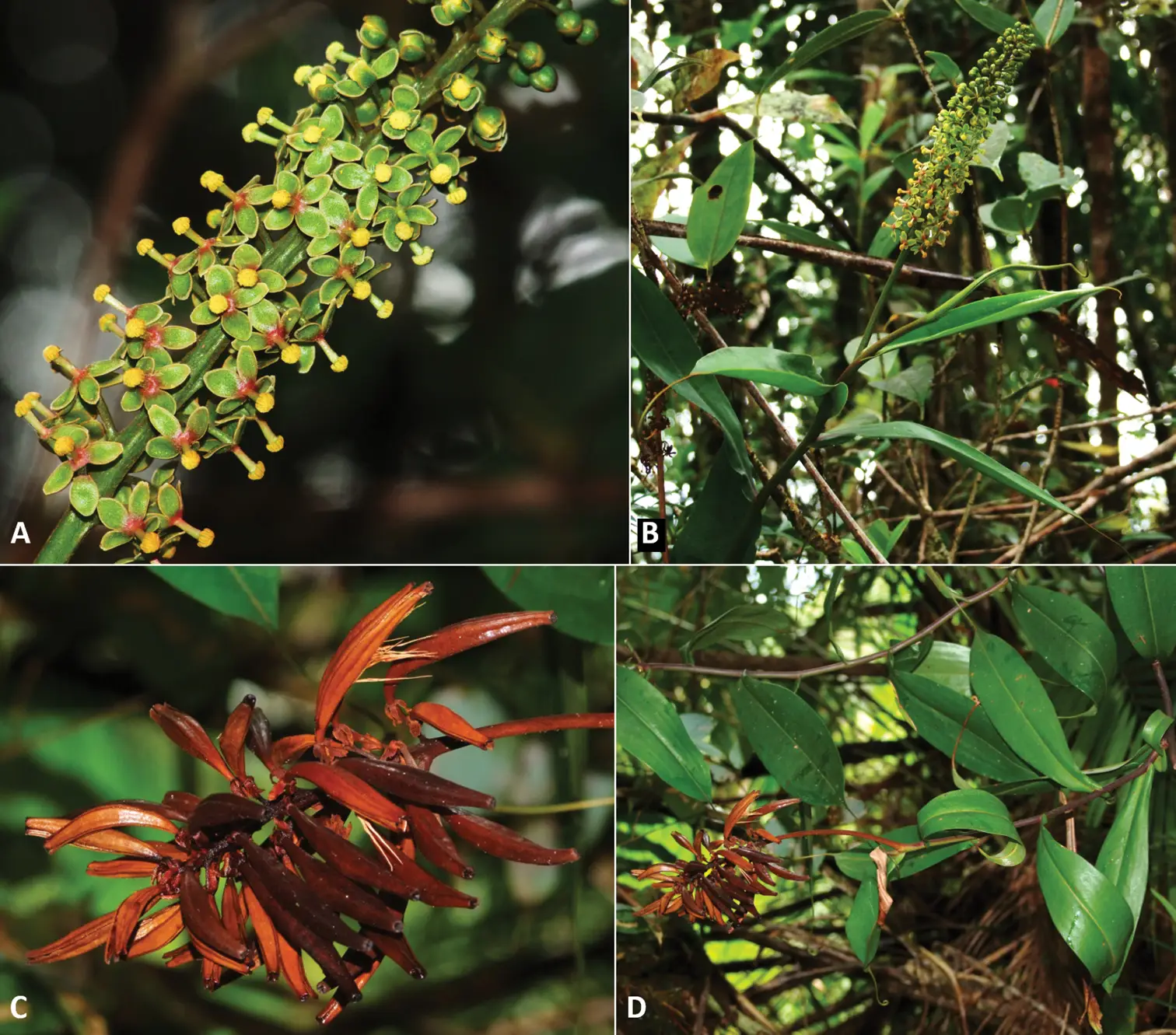
Scientists have found a new species of carnivorous plant in Indonesia.
The new species was uncovered in North Kalimantan, a province of Indonesia in the Indonesian part of the island of Borneo.
The species is part of the pitcher plant family - a group of carnivorous plants which make pitfalls traps from their modified leaves to catch prey.
Advert
The new type of pitcher plant was first discovered by accident on a 'several-day trip' by Ľuboš Majeský - from Palacký University Olomouc - who was with a research team and its Indonesian colleagues in 2012.
The group was venturing around 'a previously unexplored mountain, randomly chosen from a number of candidates' when it made the discovery.
Majeský reflected in a blog for Pensoft: "We noted plants which were undoubtedly Nepenthes but produced no pitchers. After a careful search, we found a couple of aerial pitchers, a few juvenile terrestrial ones, and one deformed pitcher protruding from the soil."

Majeský explained how, at first, the team thought it was 'an accidentally buried pitcher local environmental conditions had caused the lack of other pitchers'.
However, after finding 'other pitcherless plants along the ascent to the summit' the team 'wondered if a species of pitcher plant might have evolved towards loss of carnivory as seen in some other carnivorous plants'.
"But then, when taking photos, I tore a moss cushion from a tree base revealing a bunch of richly maroon-coloured pitchers growing from a short shoot with reduced leaves entirely lacking chlorophyll," he said.

The name of this specific type of pitcher plant has been revealed as the Nepenthes pudica, which is inspired by the plant being hidden from sight - the word 'pudica' is from the Latin word 'pudicus', which means bashful.
Lead author of the study, Martin Dančák, from Palacký University in Olomouc, Czech Republic, explained in a study published in PhytoKeys how the Nepenthes pudica 'differs markedly from all the other known species'.
The study details: "The species belongs to the N. hirsuta group (sensu Cheek and Jebb 1999) but exhibits some characters that are unique within the group or even within the genus.
"Above all, it produces underground, achlorophyllous shoots with well-developed, ventricose lower pitchers that form in soil cavities or directly in the soil. No lower pitchers are formed above ground."
While the pitchers are still red in colour and a normal size, the leaves around the pitchers are a lot smaller, not as green in pigmentation and are entirely white underground free of chlorophyll.
The new discovery has subsequently be branded as its own new species.
What sets the plant apart from the other three groups of carnivorous plant who also catch their prey underground is the size of its prey.
The Nepenthes pudica, which is native to Borneo, preys on mostly ants, 'besides other litter and soil-inhabiting invertebrates'.
Another member of the research team, Václav Čermák from the Mendel University in Brno, Czech Republic, reflected: "Interestingly, we found numerous organisms living inside the pitchers, including mosquito larvae, nematodes and a species of worm which was also described as a new species."
Scientists believe they may know the reason why the Nepenthes pudica has evolved to trap its prey underground.
The species was discovered on ground of an elevation of 1100-1300m and on fairly dry ridge tops.
The University of Bristol's Michal Golos - who also worked on the study - noted: "We hypothesise that underground cavities have more stable environmental conditions, including humidity, and there is presumably also more potential prey during dry periods."
Yayasan Konservasi Biota Lahan Basah's Wewin Tjiasmanto concluded: "This discovery is important for nature conservation in Indonesian Borneo, as it emphasises its significance as a world biodiversity hotspot.
"We hope that the discovery of this unique carnivorous plant might help protect Bornean rainforests, especially prevent or at least slow the conversion of pristine forests into oil palm plantations."
Topics: Science, World News, Environment